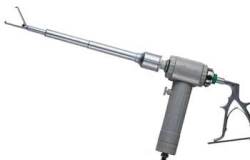Top Class Actions’s website and social media posts use affiliate links. If you make a purchase using such links, we may receive a commission, but it will not result in any additional charges to you. Please review our Affiliate Link Disclosure for more information.

A debate has arisen within the American medical community as to whether or not the benefits of morcellation outweigh the alleged morcellation cancer complications.
However, according to news reports, certain doctors’ policy recommendations supporting the use of power morcellator in gynecological surgeries were influenced by power morcellator manufacturers.
Power Morcellators and Cancer Risks
Power morcellators are medical devices that allow a doctor performing a laparoscopic hysterectomy or myomectomy to shred the tissue of the uterus or uterine fibroids in order to facilitate easy removal of the biomaterial from a patients abdominal cavity via a small incision.
While this kind of procedure allows for quick recovery time thanks to the minimal invasiveness of the key-hole surgery, the risks of cancer may outweigh the benefits provided by these medical devices. If a woman has hidden sarcoma cancer, the morcellator will shred and spread the cancerous cells in a patient’s body as well thus spreading a woman’s undiagnosed uterine cancer.
Last year in April, the FDA issued a statement regarding morcellation cancer and the risks associated with the use of power morcellators during laparoscopic surgery. This power morcellator report indicated that using these devices during minimally invasive, laparoscopic surgery should be avoided if possible, as there is currently no test that can be performed in order for doctors to determine if a woman has hidden uterine cancer.
Following this FDA medical device warning, the American Association of Gynecologic Laparoscopists (AAGL) published a policy guideline regarding morcellation, which supported the use of power morcellators and indicated to surgeons that these medical devices were generally considered safe.
The AAGL’s power morcellator report suggests that the benefits provided to patients by power morcellators when used to perform a minimally invasive procedure justify the allegedly low risk of morcellation cancer.
However, according to a recent report, this opinion by the gynecologic surgery group may have been influenced by power morcellator manufacturers.
News of Biased Power Morcellator Reports
According to The Wall Street Journal, questions have been raised regarding the morcellator industry’s influence on the AAGL power morcellator policy statement, citing a conflict of interest, because the AAGL had an executive officer who had allegedly been paid by a power morcellator manufacturer who helped write and compile the power morcellator guidelines.
In 2014, the executive allegedly stated that during the prior year, he had received at least $50,000 from Blue Endo as payment for his consulting services.
When this power morcellator policy statement was issued, it was not disclosed that the guidelines were delineated with input from Arnold Advincula, a former Blue Endo consultant. Blue Endo is one of the few companies that manufacturers and sells power morcellators.
According to AAGL emails, the members and the AAGL president warned the group’s executive and medical director that Advincula’s participation in forming the power morcellator guidelines presented a conflict of interests.
Additionally, two months after the morcellator policy guidelines were published, a former AAGL president was forced to step down from his position on the FDA’s power morcellator advisory panel, after it came to light that he had also been a morcellator manufacturer paid consultant.
Since then, the FDA has stated that there is no safe way to use power morcellators without putting a woman at risk of morcellation cancer. As of November, all power morcellator products must have a black box warning label present on the packaging, warning surgeons and patients of the risk of spreading cancer cells when using a power morcellator during laparoscopic myomectomy and hysterectomy.
Do YOU have a legal claim? Fill out the form on this page now for a free, immediate, and confidential case evaluation. The morcellation cancer attorneys who work with Top Class Actions will contact you if you qualify to let you know if an individual lawsuit or class action lawsuit is best for you. [In general, morcellator cancer lawsuits are filed individually by each plaintiff and are not class actions.] Hurry — statutes of limitations may apply.
ATTORNEY ADVERTISING
Top Class Actions is a Proud Member of the American Bar Association
LEGAL INFORMATION IS NOT LEGAL ADVICE
Top Class Actions Legal Statement
©2008 – 2024 Top Class Actions® LLC
Various Trademarks held by their respective owners
This website is not intended for viewing or usage by European Union citizens.
Get Help – It’s Free
Join a Free Morcellation Cancer Class Action Lawsuit Investigation
If you or a loved one were diagnosed with cancer in the uterus, pelvis or abdomen within two years of undergoing surgery for a myomectomy (removal of fibroids), hysterectomy (removal of the uterus), oophorectomy (removal of the ovaries), or salpingectomy (removal of fallopian tubes), you may have a legal claim. See if you qualify by filling out the short form below.
An attorney will contact you if you qualify to discuss the details of your potential case at no charge to you.
Oops! We could not locate your form.












